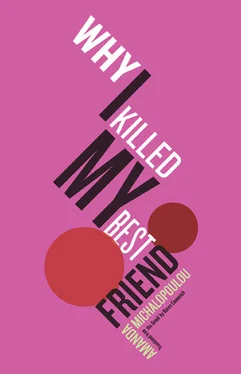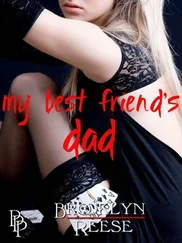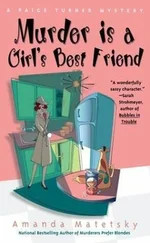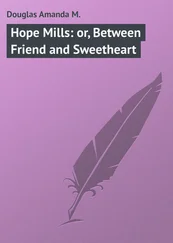Kayo’s mother was white, his father was black; they were together only briefly, and weren’t married. And yet Kayo was a miniature of the man his mother had loved, with bits of herself grafted on: dark skin, but her light eyes. Large hands, but her delicate fingers. Robust features, but a girlish melancholy in his gaze. She bathed him every day, dressed him in white shirts that smelled nice, did her best to make sure no one ever spoke badly of her son. If he had been white, would she have scrubbed quite so obsessively? Kayo says yes. His mother was a clean freak, he says. A germaphobe. She was always scrubbing the bathtub and the kitchen floor; she had a remarkable collection of cleaning products, room fresheners, floor polishes. She washed her hands every time she touched money.
“That’s romantic,” I say when he gets to that part of the story. “A distrust of money.” Kayo nods his head in satisfaction. He scrubs his mother’s memory the same way she used to scrub their house. He remembers her frozen in postures of generosity: shining his shoes; ironing the collars of his shirts; dusting his bedside table. She died young, of a heart attack, in the act of mopping the floor. Kayo found her fallen on all fours, a monument to cleanliness.
Anna calls us in mid-afternoon, while we’re eating our croque monsieur. “Maria, did you hear? A Turkish patrol entered Greek territory. They’ve opened fire on one another up near the Evros. A Greek soldier was killed.”
I spit out the bite of food I just took, hang up and call Christophoros’s house. His mother is in hysterics. “They won’t tell us anything, they’ve got them all on alert. Oh, child, the Turks are going to get him!” I can hear his father blustering in the background, “It’s all Papandreou’s fault. You can cut off my hands if I ever vote for him again!” I sit on the floor and cover my face with my hands because I no longer know who I am, where I belong, who I want.
Anna comes whirling in like a tornado. “But you dumped Christophoros! What use is there in feeling guilty now? There’s an entire value system in play here, Maria. You can’t feel guilty, you’re not responsible for anyone’s fate.”
“But what if something’s happened to him?”
“Nothing’s happened to him. It’s just the exaggerations of the mass media. They say all this stuff on purpose, to make us afraid, to control us. Haven’t you learned anything at all from Orgapolis?”
Kayo hugs me from behind. My whole body is suddenly on alert, just like the Greek troops. I forget Christophoros, the Turks, Orgapolis. At Kayo’s side, I exist in the only space I can properly call political: the space of desire.
I travel back and forth. Athens, Paris. School of Fine Arts, Orgapolis. Christophoros, Kayo. I’m not sleeping with either of them, of course, since one is in the army, the other in a world of his own. Besides, the AIDS epidemic has broken out, and sex is seeming more and more like a germ, an ordeal, a wound. Kayo is earning tons of money from underwear ads and he pays for my plane tickets. He says it makes him feel calm to lie beside me, though there are plenty of nights when he doesn’t come home. I’m not only jealous, I’m scared of AIDS, too.
“We’ll shrivel up into sexless old ladies if we have to ask every person we sleep with for a résumé first,” Anna says. She’s sitting on Kayo’s sofa with her shoes on the cushion. That’s her idea of making herself at home. If Kayo saw, he’d have a fit.
“You don’t think we should go get tested, just to be on the safe side?” I say.
“And if it turns out we’re positive, we’ll stop having sex, is that what you think?”
She squints at me. She’s adopted an ostensibly free-wheeling air. When she looks at me like that, I feel like slapping her. Instead, I just stare at my knees.
“Well, I’m going to,” I say, and the issue ends there.
As soon as I get back to Greece, Antigone takes me to get tested. She’s gotten involved with a committee that deals with AIDS and she knows where to go. “It’s such bad luck for you girls,” Antigone sighs as we walk under the harsh lights of a hospital corridor. “It’s going to rob you of all your spontaneity.”
Mom thinks that God sent AIDS. She’s almost happy about it, because it means she won’t have to keep tabs on me herself. She’s putting me in trustworthy hands — patriarchal, punishing hands that grip me by the neck as the needle enters my vein to draw its blood. Another Maria, sick and ailing, shuffles down hospital corridors with sunken cheeks, missing teeth, lesions from Kaposi’s sarcoma all over her body, pushing a pole with a bag of fluid hanging from it. That other Maria says to me, “You’ve done nothing with your life, you’re useless. You faint at the sight of blood. All day long you cut up pieces of paper and stick them back together again. The only way you’ll ever get out of this rut is if you find some idea to fight for, if you start to think about other people’s problems.”
The test comes back negative, but I decide it’s time for me to get involved on a personal level. I start to design posters about AIDS. A pair of tigers tear one another to shreds inside a pink condom; the end result is too pop for words. I photograph a condom centered on a placemat, fork on one side, knife on the other, with “Bed and Breakfast” as a caption — but it looks too much like an advertisement. Finally I come up with a decent idea: dozens of I.D. photos of couples kissing. We’ll go into photo booths in pairs and everyone can kiss everyone else, boys kissing girls, girls kissing girls, boys kissing boys, to fight back against the conservatism that’s been spreading as fast as the virus.
On my next trip to Paris, I tell Anna about my idea. She makes a face.
“It sounds like a Benetton ad.”
But when we pull the little curtain closed in the metro station at Saint Michel and the flash goes off, Anna parts her lips and our tongues touch. She’s learned a thing or two since the last time we kissed.
My legs are trembling when Kayo and I shut ourselves in the booth.
“Like it or not, you’ve got to kiss me for real.”
There are all kinds of tongues, square ones, round ones, wet, dry, warm, cold, lively and lethargic ones — but none as ethereal and inventive as Kayo’s. He’s on the rotating stool, I’m in his lap, the flash goes off four times and our tongues touch, chase one another, rest, rush at one another again. He starts to pull back and I bite his tongue, hard.
“Why’d you bite me, Maria?”
Because I didn’t want you to leave. I want you to know how it feels for your whole body to ache with desire. I worry that art and activism always have an ulterior motive. In this particular case, it’s Kayo’s kiss.
We print as many copies as our meager funds will allow in a cheap print shop where Orgapolis prints its materials, too. We go out that night and put the posters up in the metro; we take turns standing guard; we’re quick and methodical. It makes me sad that I don’t have any real friends in Athens so we could put them up there, too.
“We’ll come and help,” Kayo says.
They don’t, of course. I always go to them, they never come to me. It makes me feel that Athens is small and lacking, as if everything is happening elsewhere. And that reminds me again of how Anna tricked me, left me behind.
“Mom, I decided to move out after all. I found a two-bedroom place on Stournari Street.”
She turns toward me, her hands covered in soap suds.
“Where on Stournari?”
“Just on the other side of the square, Mom. Right around the corner.”
Whenever we talk about it, something always drops from her hands — a knife, a glass. The way she sees things, if a child wants to move out, it means the parents have failed.
Читать дальше












